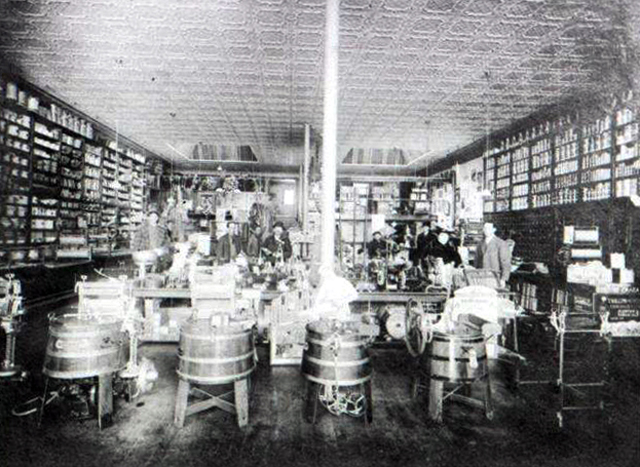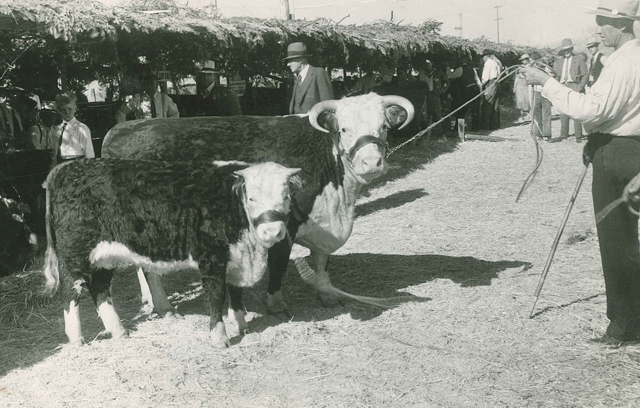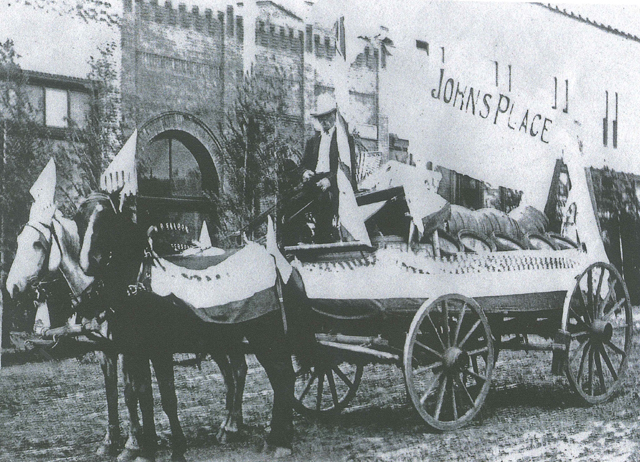| Cottonwood
to celebrate 150th year in 2012, area history included
(History continued from last week) Merry Christmas to all in 2011 as we recall some of the special people and things that brought us into the many blessing we enjoy today. There are still a few of us that remember events from the 1943-44 as well as in the closing in and yes, the great push to end WWII. We had been involved in the “Battle of the Atlantic” since we decided to go the aid of Britain, France, and other brave countries in 1940-41. Germany had started the U-boat operation with about 40 subs and because of their great success had boosted this number to about 300 in 1943. British and American forces working together had come up with a new battle plan. Instead of trying to fight with more and bigger ships, they decided to use airplanes, and the newly designed radar to combat the U-boat. They painted the planes the color of the Atlantic sky, making them hard to see and became more familiar with the radar system. This practically led to the complete destruction of their boat fleet and our ships at last reached their destination and provided the much needed supplies to the allied forces. Shortly thereafter the talk of “Operation Overlord” started, and Germany’s defeat at Stalingrad set the stage for the retaking of Europe. While the velocity of the war in Europe continued to build, the war in the Pacific also went on the offensive. As Americans started to regain from the sneak attack, some good news started to filter back to those here on the home front. Starting on January 13, 1943 the Japs were driven off Guadalcanal and by February 8th victory there was declared. By the way, on Feb. 7th shoe rationing was started. Most dads went into the shoe repair business. A big mine here in Bear Creek, Montana exploded and 74 miners lost their lives. March 2nd the US and Australian forces sink Japanese convoy ships. American forces fight in the famous Bougainville Battle and after five days the Japanese give up their assault. The war in Italy sees some extremely heavy fighting and many local soldiers write home with a “War as Hell” theme. Slowly but surely our forces take up Italy and move further the North. At home the CCC and the WPA are dismantled as the war effort takes over. More and more, the war and concern for our soldiers preoccupies us all. We are all concerned about the coming of the European invasion. We know that our Army is building up in England getting ready for the big push. Our Air Force is almost entirely in control of the air space over the Western Europe --- it is only a matter of time now. All our mail from the boys over there direct all our attention to Berlin and the end of this slaughter of human beings. Over 20,000 people, soldiers, and civilians were killed in the Battle for Monte Casino in Italy, alone. In April comes news that 750 American soldiers died in a training experience off the cost of England. Then in June comes news of the invasion of Europe by Allied forces in Normandy. In the middle of all this “Smokey the Bear” posters are release here for the first time. People seem to be drawn to this as an escape from all the war news. Paris is liberated in late August 1944. In the Pacific, U.S. forces retake one island after the next. The causality list grows, but overall the end is now in sight. Then, on December 17th the German’s started a counter offensive which began what we now know as the “Battle of the Bulge.” For awhile it nearly looked bad for us. The mistakes made by the high command in putting some arrogant generals in positions where they used their men as pawns seemed to me to be the problem, but everything eventually turned out okay. In the Pacific the Battle of Leyte left 10,000s of Japanese dead and the drive to Japan on track. Then came Iwo Jima -Mavilla corridor and the recapture of Bataan. At home, time seemed to drag on forever. With the war coming to a close, all lived in fear we would lose one of our loved ones in the last days. The soviets were allowed to take Berlin. Hitler and Eva chose to commit suicide, as well as, many other German officials and officers. In the nasty job of cleaning up the horrors of war, the truth behind the master race came out in the open. One of the local men was there when they found and liberated several prison camps. He couldn’t tell the whole story. He never fully believed all he saw. Death is a small price to pay for liberty! May 8th 1945 finally VE Day (Victory in Europe Day). In the pacific, June 21stmarks the end of the battle of Okinawa. On August 6th, the first atom bomb is dropped and 3 days later another. The war there is also over. We at home will feel the impact of this war forever; both in what we do and what we won’t do. A few of the local men started to trickle home and the economy switched from war to peace in a couple of years. Some came home to set up a shop doing what they learned during the service. There were many families which took advantage of the GI bill in education and home building. There were new cars, trucks, and tools of all kinds. It took a while for all to settle in. America once again turned to the land of plenty and every one was anxious to enjoy the prosperity they had made. This did not happen all at once. Rather it happened over the next few years. It was great to greet the men returning from the Western and Eastern fronts. The places at the table were filled once again, and Thanksgiving and the coming holidays became something special. 
An early day photo of Hone Hardware. Photo contributed by Don Kopczynski. 
The breeding pair that sired much of the Gehring cattle line. The photo ID said that was Ted Gehring on the halter line but Karen Gehring wasn’t sure that was him. Photo courtesy of Karen Gehring. 
John Funke brought in this photo of his great uncle John Funke’s parade entry advertising “John’s Place” a local bar of the time. Remember When Remember When . . . Mom started making popsicles? Also during the war brownies replaced most candy treats? Flower sacks were used for a lot of different sewing projects? Store bought dresses were few and far between? Dad filled in for the family dentist with his trusty pliers? Iodine was the disinfectant and strong like gangbusters. Heil–oil and Alpenkrauter emulsion were standard treatments for colds? First American soldier sent to Europe landed in Northern Ireland? The Doolittle raid on Japan was staged in April of 1942? You just heard of the Diary of Anne Frank? The Completion of the Alaska highway? The kids came home from school talking of “swapping” fat sandwiches? (These were bacon drippings spread on bread) Remember the horse drawn sled used in the winter by the sister from the Convent – two horses driven by Sabi Frei? The many framers who dropped of the milk and cream each day at thedairy? Almost all of the eggs sold at the grocery store were farm fresh? Next meeting of the 150 year committee is Thursday Jan. 12th at 2 PM |
|